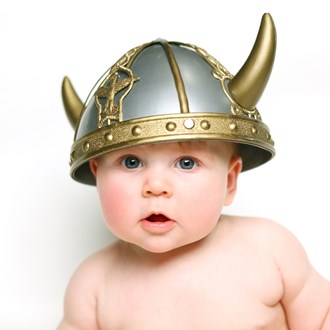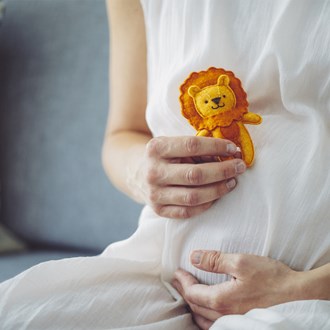Meghan Markle pregnant: how easy is it to conceive naturally at 37?

A fertility expert reveals how she may have increased her chances, and how you can do the same
We all know that The Duke and Duchess are expecting their first child, but do we know if they conceived naturally or did they use IVF treatment?
At 37, Meghan’s likelihood of falling pregnant is less than a woman in her twenties, yet according to Dr. Raewyn Teirney, a leading fertility specialist and gynaecologist, the former Suits actress still could have conceived naturally.
“The chances of a 37-year old woman conceiving naturally would be around 15-18 percent per month. Falling pregnant is still about chance and probability, therefore, there is a possibility that Meghan Markle conceived naturally and this quickly."
Harry and Meghan have made no secret of how much they wanted a family in the near future and according to Dr Raewyn Teirney it’s likely that they sought fertility advice from an expert because of Meghan’s age.
“I can’t say for sure she has had any implantation procedures done. She would have definitely put some kind of cycle tracking into place, monitoring her most fertile times and ensuring she was at her healthiest and most relaxed in order to conceive,” she adds.
According to Radar, Meghan is believed to have consulted London-based nutritionist Melanie Brown at the end of last year, who visited the former actress in her new Kensington Palace home to give her tips on conceiving.
Dr Teirney also feels that coming from a Hollywood background, it’s likely that Meghan has always been health-conscious and eaten well, enjoying healthy, organic and unprocessed whole foods, which would have increased her chances of conceiving naturally.
“I’d say both the Duke and Duchess of Sussex are both extremely fertility fit. Neither is overweight, which improves the chances of natural conception.
“They clearly follow a very healthy diet, rich in nutrients and antioxidants essential for fertility health and fitness. Neither seems to over-imbibe or indeed smoke cigarettes, both of which may affect fertility of both partners,” she says.
“They’re also very fit looking and well-toned, which suggests they enjoy regular exercise. Studies show exercise improves fertility of both the female and the male (remember, it takes two to make a baby and the male needs to be in optimal health, too).
“They could have gone down the IVF path, sure. However, we will never know for sure. Either way, I say congratulations! The best news is always news of a happy, healthy pregnancy and baby – no matter who in the world it is. And if she has conceived naturally (as I suspect she may have done), it gives so much hope to other mums-to-be out there that they can too fall pregnant naturally.”
Dr. Teirney’s top 10 tips to improve your chances of conceiving naturally
1. Watch your weight
If a woman has a BMI greater than 25, she has less chance of conceiving naturally. This becomes significantly worse if she has a BMI over 30. Men need to be in a healthy weight range, too – if either partner is overweight, chances of natural conception are reduced.
2. Exercise regularly
Aside from improving all over health (including fertility health), the fitter you are, the more likely you are to want to have sex. Exercise improves your mood and when the mood is enhanced, you’re more likely to feel amorous. Furthermore, the better you look naked, the more likely you are to want to actually BE naked in front of your partner, which can contribute to a fulfilling sex life.
3. Get plenty of sleep
If either partner is overtired or not sleeping properly, your sex life can quickly go out the window. You’re also more likely to reach for starchy, sugar-rich or processed foods, which aren’t great for health and fitness.
4. Start cycle tracking
Women who track their menstrual cycle will know when they are ovulating and as such will have a better chance of conceiving naturally.
There are four simple steps to doing this:
• Monitor basal body temperature. Use a high-speed digital thermometer. You’ll notice a small drop in temperature (about 0.2 degrees Celsius) when ovulating.
• Test for Luteinising Hormone (LH). You can do this with a urine test. Levels will spike when you’re ovulating, indicating it’s time to start trying!
• Monitor your cervical secretions. When oestrogen levels spike (indicating that you are fertile), these secretions will be creamy and slightly wet. When you’re at your MOST fertile, they will be clear in appearance, thing, slippery and quite stretchy.
• Check other signs of fertility. This includes pelvic pain, fluid retention, swollen, sore breasts, bloating and blemishes.
5. Don’t smoke
Smoking negatively impacts the health of your reproductive organs (for both partners in the couple) making it harder to conceive.
6. Cut back on booze
Limit intake to two standard drinks a day. Any more can negatively affect the health of both the egg and the sperm.
7. Don’t take illicit drugs
From marijuana to Class A drugs … these can all negatively impact sexual and reproductive health of both the female and the male.
8. Watch your meds
Both partners should ask their doctor if any over-the-counter or prescription meds you might be taking could affect your chances of conception.
9. Follow a well-balanced diet
Eat lean protein and plenty of nutrient dense fruits and vegetables, to provide the body with the essentials it needs to facilitate conception and ensure a healthy pregnancy. Steer clear of processed and junk food, high sugar and caffeine-rich foods and drinks and artificial colours, flavours and preservatives.
10. Consider supplements
Women trying for a baby should start taking a 500mcg supplement of folic acid daily, at least a month before conception. Folic acid is a B group vitamin essential for neural tube development in the first 12weeks of pregnancy. Men should up their intake of antioxidants, selenium, zinc and garlic, all of which can have a positive effect on the health and vitality of their sperm.

Faye James is a regular contributor at New Idea, WHO and Practical Parenting and works across health, beauty, celebrity and royal content. She has over 20 years of experience spanning across the UK, Middle East and Australia.












